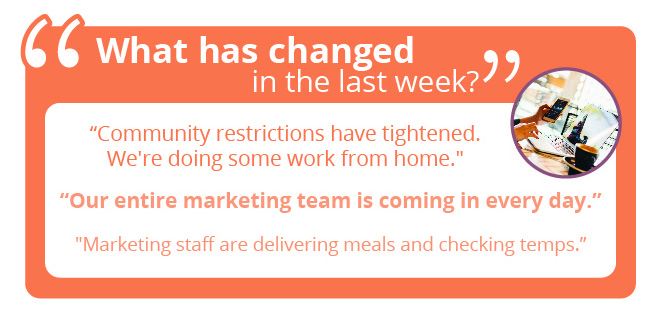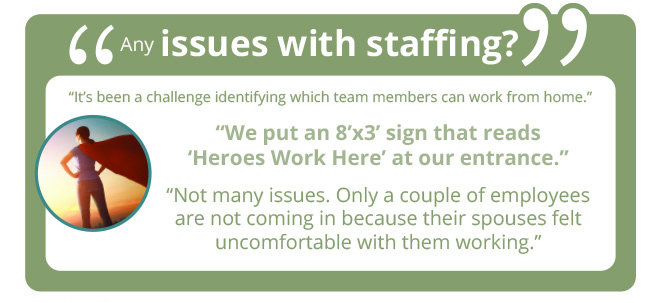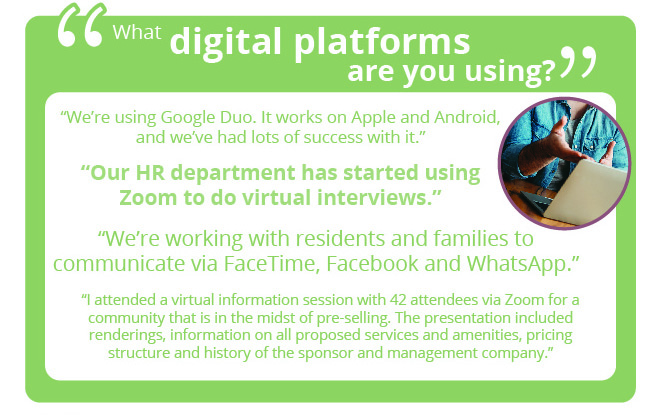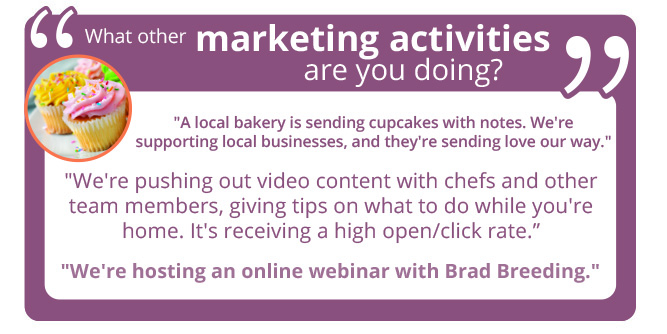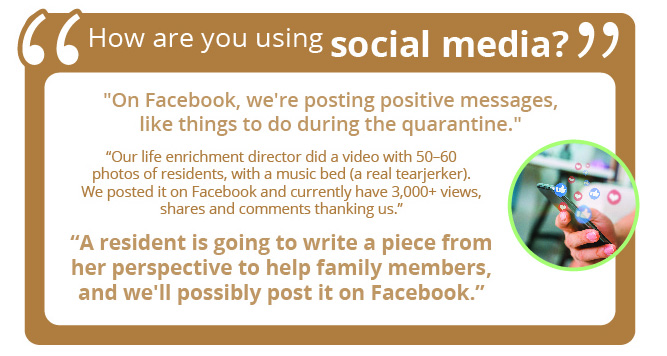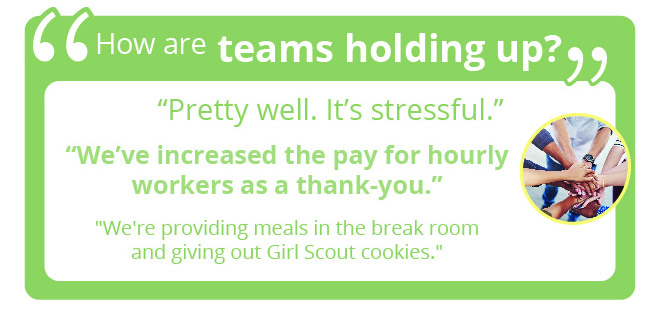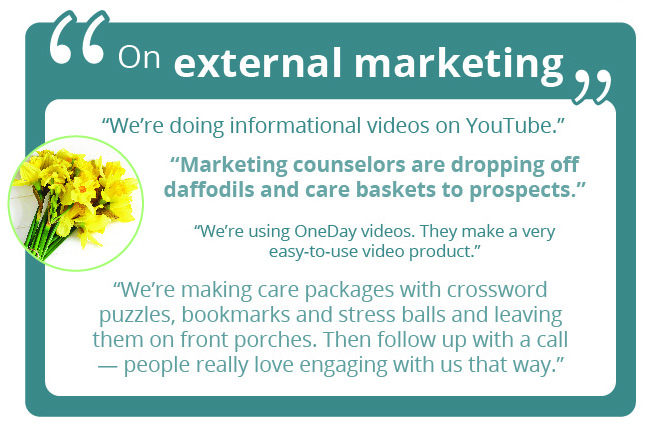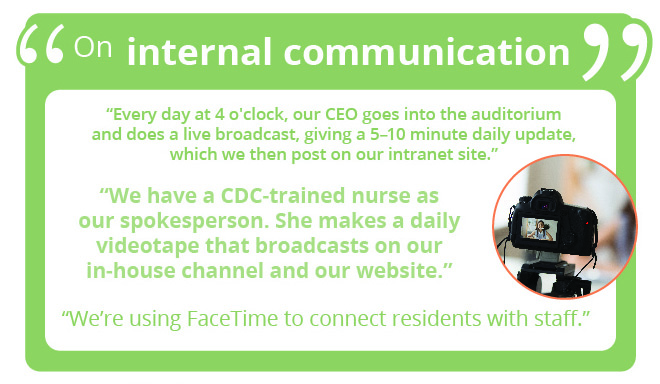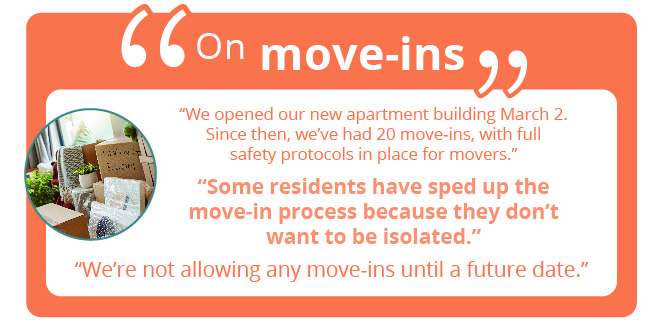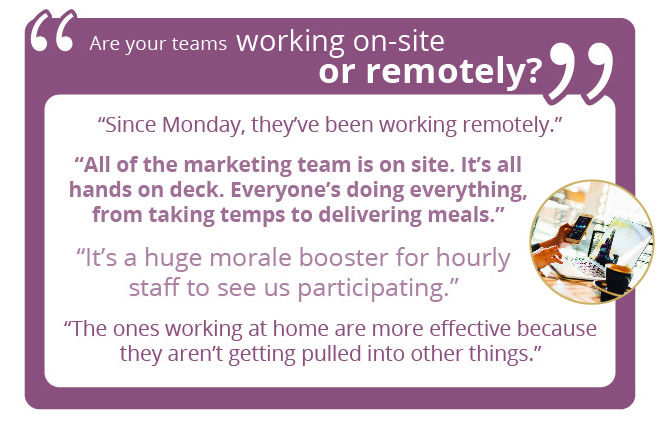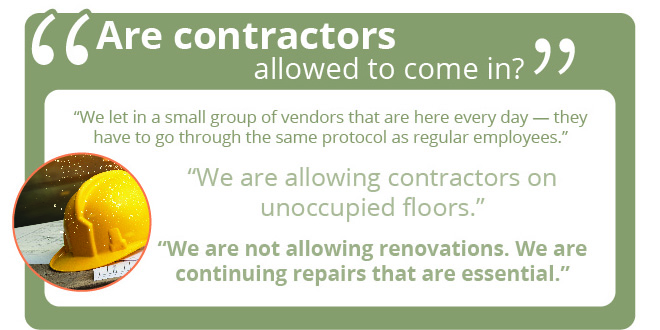June is Alzheimer’s & Brain Awareness Month. To draw attention to memory issues, Jennifer Honeyford, senior director of resident life and performance improvement at The Philadelphia Protestant Home (PPH), is sharing the community’s innovative programs and her personal experience with caring for people with dementia.
Walking in Their Shoes
It’s so important to really understand what life is like for people with dementia. One of the projects we started at the end of 2018 was to increase our staff knowledge of this condition. We surveyed everyone and asked them what they wanted to know, and then, we looked for educational programs that would teach those topics. We found that almost everyone has a personal connection with the disease, as well as a professional one. The staff were really open to the education.
One of the initiatives that came out of the survey was a virtual dementia tour, which we are now licensed through Second Wind Dreams to operate on campus. We are able to offer this sensitivity training program through a grant that was funded through the Ron S! Charitable Fund and the Anna T. Jeanes Foundation.
The tour is basically eight minutes in the world of someone living with moderate-stage dementia. Our staff are assigned a time to come into a room we have set up. They are outfitted with glasses that distort vision. They wear a headset with sound running through it that gives them auditory hallucinations. They wear thick, heavy gloves, which limit their ability to grasp and touch. Finally, they have eight minutes in the room to complete five tasks — which are virtually impossible to complete in that time.
Feedback Has Been Phenomenal
We’ve had about 65 staff members including upper management go through the training, as well as some family members. They describe it as “powerful” and “humbling.” After going through the experience, staff members have said they will never be impatient again. They say things like, “I felt so isolated, so alone. I had no idea how hard it is to have dementia. I will be patient, I will be kind.”
What’s beautiful is that they are experiencing the disease firsthand. The learning is theirs — they are interpreting it for themselves.
If we who have healthy brains can act as if we have dementia, then why can’t someone who has dementia better navigate this condition if we alter their environment? By understanding how confusing and overwhelming life with dementia is, we can look for those things that might be triggering and upsetting and help them to better navigate their daily landscape.
Why I Entered the Memory Care Field
My whole life, I’ve had an overactive imagination. Health care was just a good fit for me — especially dementia care, because you have to be able to enter people’s worlds and see things from their perspective. I started in health care, directing recreation therapy, then I moved into a senior director role. I provide administrative oversight to our recreation therapy and life enrichment departments, including Chapters, the memory care program at PPH. I’ve been here for 22 years, and I feel like I’ve grown up here.
What Residents with Dementia Have Taught Me
I think that what residents with dementia have taught me is to enjoy the simple things in life — to be kind, genuine and patient.
You have to be able to imagine where they are because you want to be able to understand them and be empathetic to their needs. That’s what excites me most — being able to come up with a solution to a problem. We look at the person’s leisure interests and former occupation to give us cues so we can offer them purpose and enable them to do things for themselves.
One way we help employees from all areas of PPH gain understanding of residents with memory issues is through a certified dementia practitioner (CDP) program, led by four certified on-site trainers, including myself. Fifty staff members from all disciplines have taken the training, which has proven invaluable to them. Read more about the PPH dementia training program here. To learn more about CDP credentials, please visit nccdp.org.
No matter what we remember or what we forget, we still have that human need for purpose — we need to be seen, valued and heard. I want to treat people with dementia with the dignity and respect that they have earned. They deserve that.

